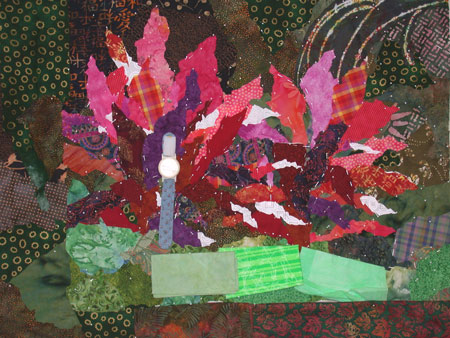

Fabric Collage
Part One
Part Two:
Border options and Stitching
After the main composition is complete, I consider a border. I may audition colors with the computer, but final decisions are made with actual fabrics. For this piece, I first considered dark green borders on two sides. (And maybe some brighter green in the foreground, too.)

I wasn't crazy about that, so I tried black, this time on the left only. I liked that, and decided to add some sort of contrasting fabric to separate the border from the main part. In the next photo, I simultaneously tried out three different pink fabrics.
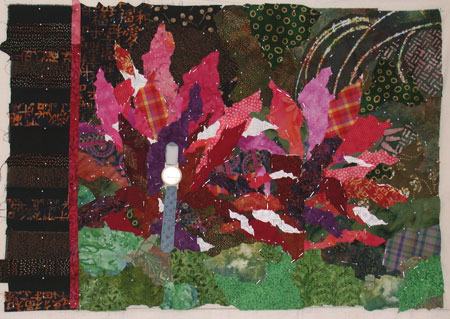
I noticed that the leaves on the left ended rather abruptly, so I decided to extend some of them into the border.
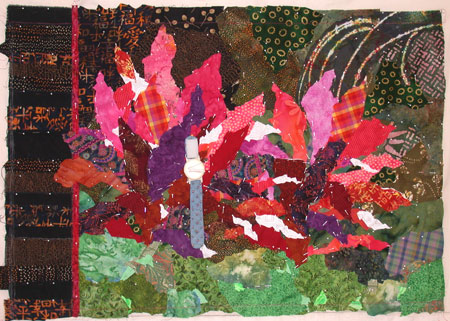
Once I'm happy with the composition, it's time to pin everything together, so I can get it to the sewing machine. Using LOTS of long pins, I pin through all layers. When it's secure, I layer it on top of batting, and add a few more pins. (Sometimes I add a backing fabric at this point, but often I use a facing technique, which later forms the backing.)
In the next photo you can see that I extended the leaves on the left even more. That's one of the great things about this collage technique: it gives me the ability to add more elements at any point. In this photo, most of the stitching is complete. The stems and one final leaf have been pinned in place, and are ready to be stitched.
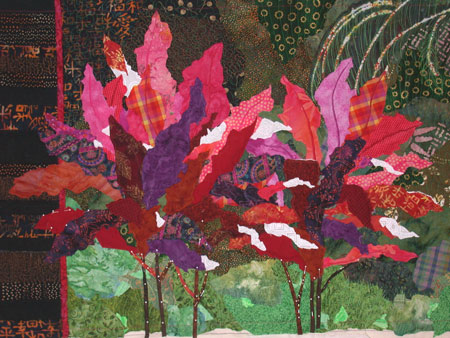
Stitching creates an important visual element, both with the thread and with the added texture.
In this case, I also added heavy stitching to represent veins in the leaves.
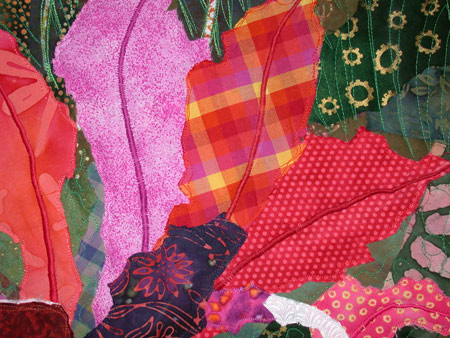
Stitching holds all the layers together. With it, I aim not only for a pleasing appearance, but also for structural integrity and control of the many pieces of fabric. However, I don't try to heavily cover the edges. Instead, I prefer the texture of leaving them "as is."
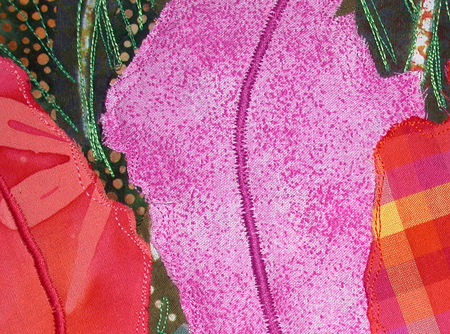
Finally, I finish the edges, and give any loose threads a "haircut."
Here's the finished product. Click on the photo for more information.
Fabric collages such as this one are simple to hang and easy to care for. Read on, for those details.
You may also enjoy this similar article.
©2007-2012 Ellen
Lindner
|